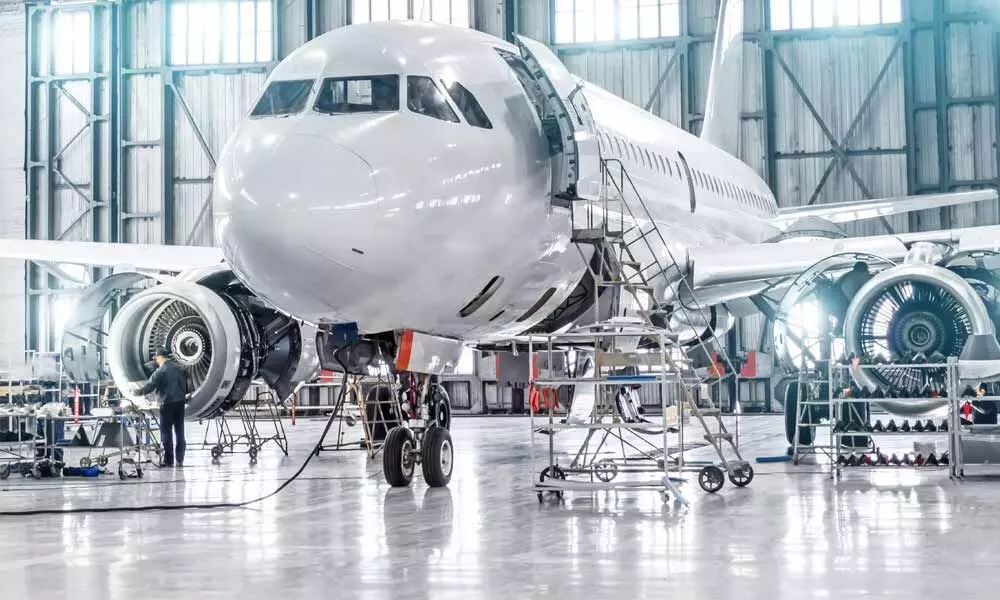Aerospace industry close to catapulting itself into global arena as private sector is in
The Indian aerospace and defence market is expected to reach more than $23 billion by 2024, growing at over 5% CAGR. It was supposed to become the third-largest aerospace industry in 2020
image for illustrative purpose

The Indian aerospace and defence market is expected to reach more than $23 billion by 2024, growing at over 5% CAGR. It was supposed to become the third-largest aerospace industry in 2020.
The aerospace and defence (A&D) market in India is estimated to reach around $70 billion by 2030, as the momentum is expected to further pick up with improving infrastructure and government thrust. This makes a strong case for global OEMs and their suppliers to examine India as a destination to play a vital role in the global supply chain for aerospace components and parts. There could be several advantages to gain from the low costs in India along with the technical and engineering expertise/skills available for high-precision and high-quality components.
In the past century, the progress of the domestic aerospace manufacturing of local aircrafts, helicopters and other aerospace products has largely been limited to the government-owned entities like HAL, NAL, and ISRO. But turn of this century has seen an aggressive growth of the private industry participation, backed by large corporate houses such as Tata, Mahindra, L&T and Godrej.
The Indian aerospace industry is close to catapulting itself into a global arena with rapid rise in demand for aircraft and components. The country has many advantages such as low labour costs, high availability of engineering, design and technical manpower and expertise, high growth markets, etc, and active support from the government's new policies as well. This presents a unique opportunity for global companies to tap into the Indian aerospace market across the entire value chain for aero structures, components, assemblies and even complete equipment/aircraft and related services.
With privatisation in space being ushered in this year, extraordinary opportunities in space can now be available for indigenous manufacturers. At Skyroot, they are building technologies for responsive, reliable and economic access to space. They envision a future where spaceflight is as regular, reliable and affordable as air flight. The Hyderabad based startup has successfully test-fired a solid propulsion rocket engine named Kalam-5, which is a demonstrator solid rocket propulsion stage with exactly same propellant, materials and interfaces as the three solid propulsion stages of Vikram-1 launch vehicle.
The startup is aiming at its first launch vehicle Vikram-I with the help of ISRO in December 2021.
Skyroot is backed with funding by Mukesh Bansal of Myntra, Solar Industries, Vedanshu Investments and others. The startup also revealed that it is in the process of raising $15 million funding in 2021.

